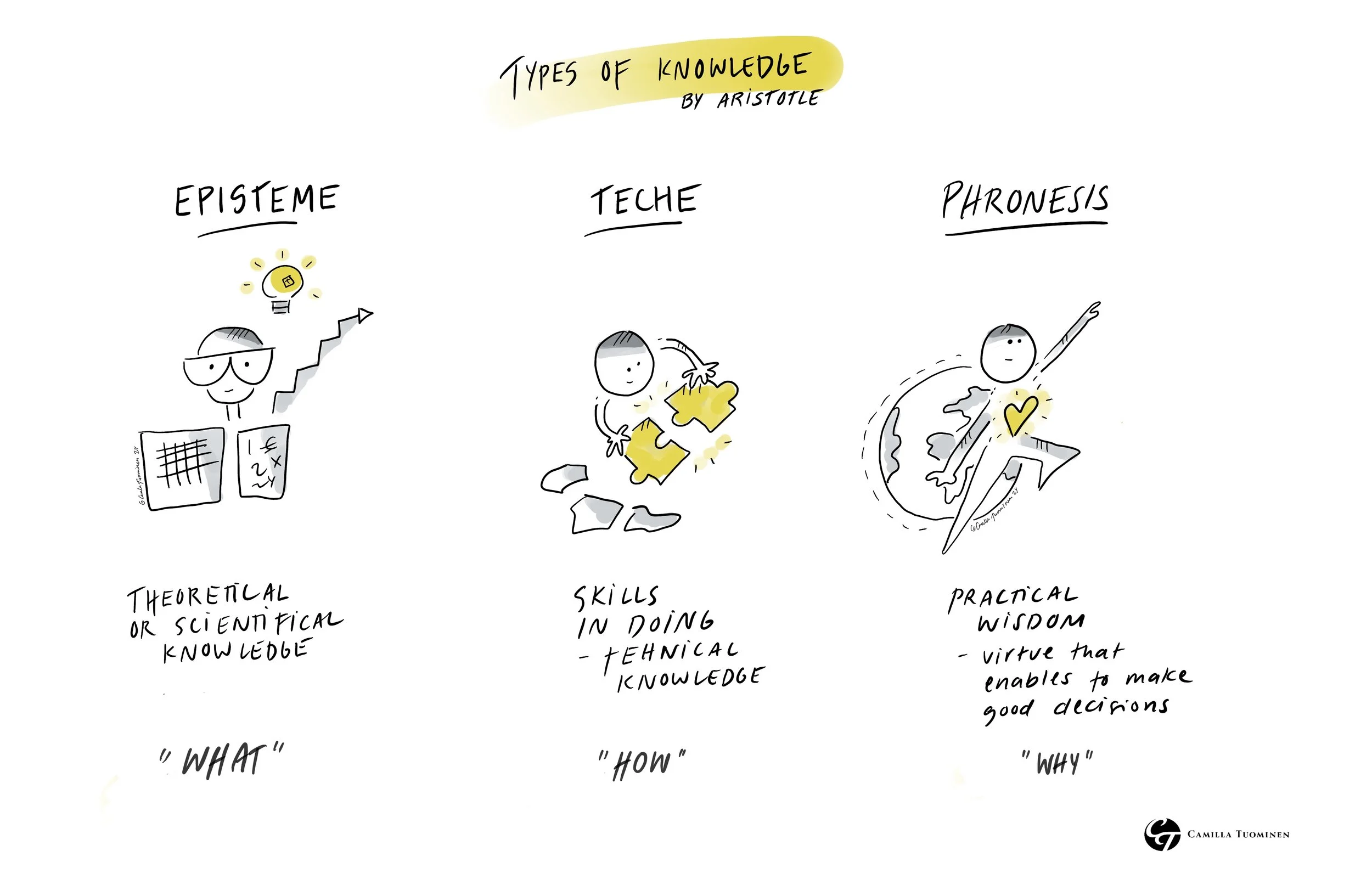3 Types of Knowing
We know a lot in our professional lives and are skilled at doing things,
but do we also have the wisdom to act rightly?
In my view, mere knowledge and action are not enough. We also need a deeper, situational compass that guides our actions in ever-changing circumstances. I think this reflection is especially relevant now, but these same themes were contemplated by Aristotle back in the 4th century BCE. During my studies in the philosophy of science, I learned about Aristotle's three forms of knowledge, which resonated with me deeply. They are:
Episteme: Refers to theoretical or scientific knowledge. It is universal knowledge that is systematic and can be taught. Episteme focuses on the eternal and unchanging, like the laws of mathematics or the principles of physics.
Techne: This can be translated as “skill” or “craftsmanship,” but is better understood as the technical ability to produce things or achieve certain results. Techne encompasses both practical know-how and the ability to create a tangible object. For example, a carpenter's ability to build furniture or a doctor's skill in diagnosing and treating diseases falls under techne.
Phronesis: Practical wisdom that relates to ethics and action in varying situations. Phronesis is not just about knowing what to do, but also understanding what is good or best in a given context. This form of knowledge is crucial for true leadership and governance, as it involves human behavior and interpersonal relationships.
Inspiring, isn’t it? I’m so excited about all this!
